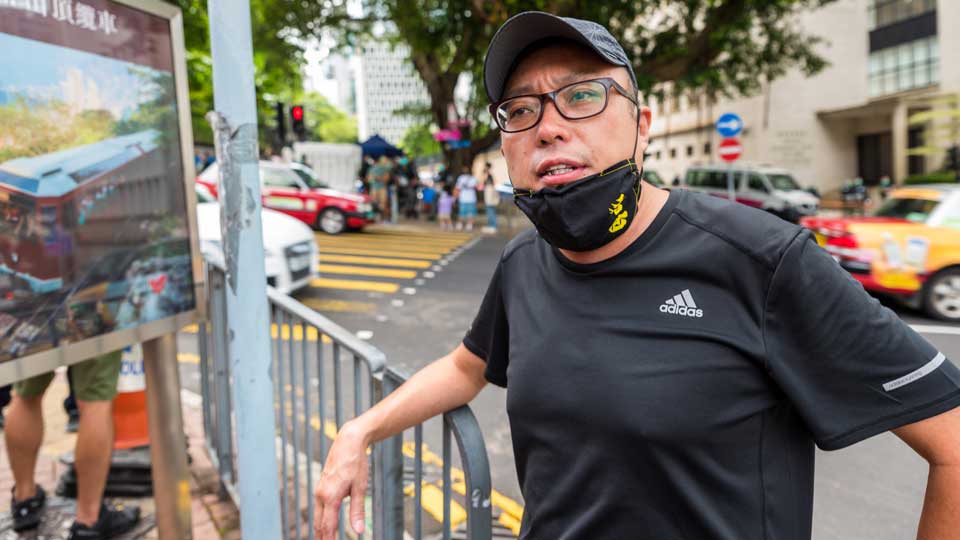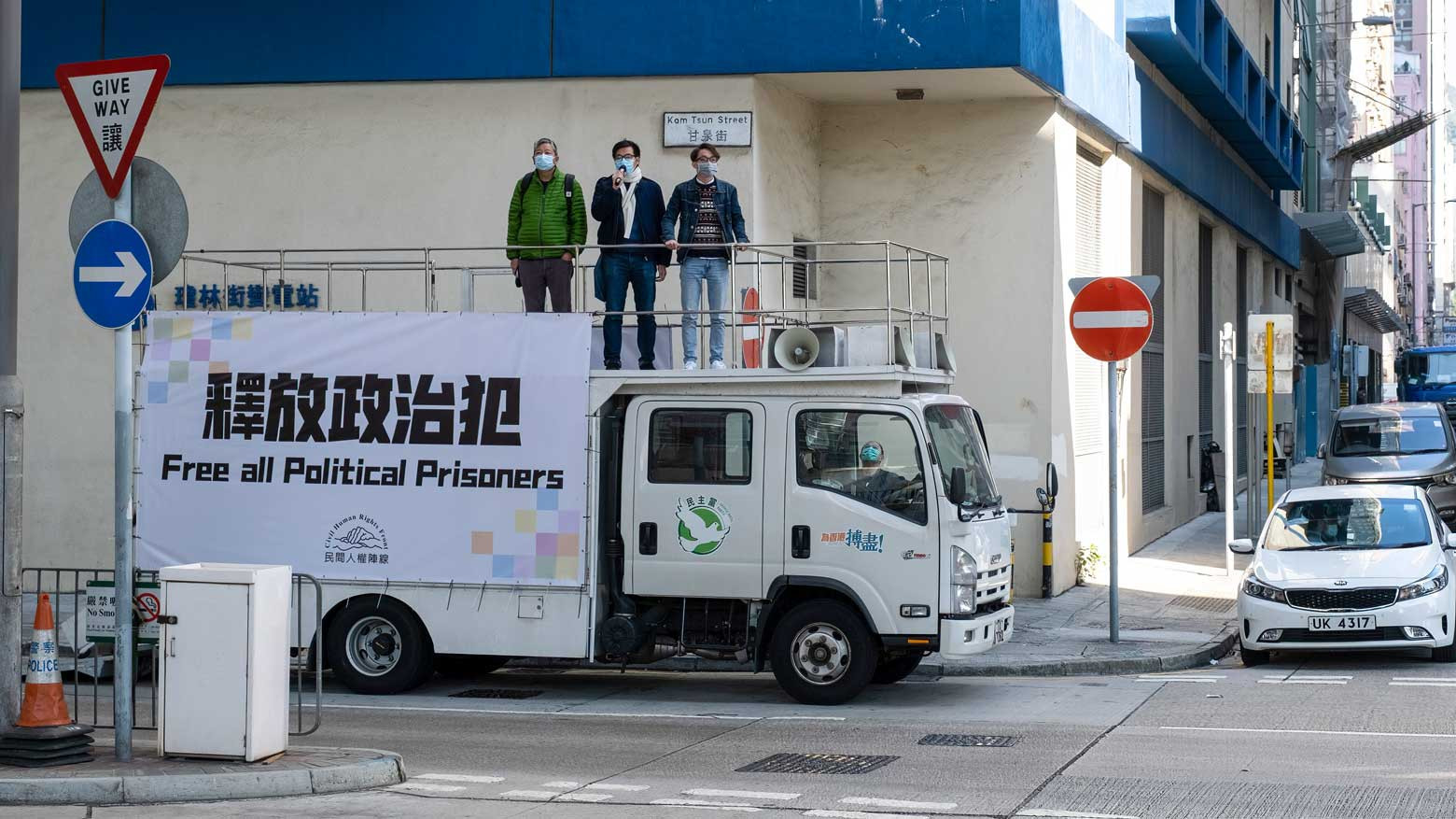Police allege the 55 suspects “obstructed administrative functions with the aim of overthrowing the national government.” The arrests are linked to an unofficial vote organized by pro-democracy activists to choose candidates for a Legislative Council election that was to be held last September, but which was postponed. It’s believed to be the first time anyone has been arrested for subversion in Hong Kong.
Pro-democracy parties and groups say those arrested include Wu Chi Wai, a former Legislative Council member and one-time head of the Democratic Party, as well as Jimmy Sham, a district council member who previously headed a group that called for mass protests.
Professor Korogi Ichiro, an expert in Chinese politics at Kanda University of International Studies, says the scope of the crackdown appears to be getting wider, as activists viewed as moderate by Beijing were among the people arrested.
“It seems that the authorities want to eradicate the movement for democracy by rounding up pro-democratic forces,” says Korogi. He also says the Chinese government’s campaign to scrap Hong Kong’s democratic systems could go far beyond politics. “They may thoroughly modify the values that form the basis of society in such areas as education and justice.”
Judicial independence shaken
Radio DJ Tam Tak-chi was arrested and indicted last September. The 48-year-old has earned the nickname "Fast Beat" for his rapid-fire criticism of the government. Even after the national security law went into effect and the large-scale protests disappeared, he still took to the streets every weekend with his anti-government message.
Investigators in charge of Tam were from a special unit newly established within the police based on the national security law. He was indicted not for the violation of this law, but for “uttering seditious words.” According to Hong Kong media, the crime is based on a law enacted during the British colonial era to crack down on pro-Chinese resistance to colonial rule, and has not been used since the 1960s.
At trial last month, the judge was suddenly replaced at the request of the prosecutors. They argued that Tam's acts on the streets “harm national security” in violation of the national security law, and sought a hearing with a judge designated by the chief executive of the Hong Kong government.

Johannes Chan, a Professor of Law at the University of Hong Kong, says the change of judge could undermine Hong Kong's judicial system. “If prosecutors can have a judge replaced on grounds of national security in this case, they can have one replaced in any case, even sedition or assault, citing national security,” he says. “A judge should not be selected at the convenience of any parties. This is a critical element of judicial independence.”
In a letter to NHK, Tam expressed anger at the current situation in Hong Kong: “I wasn’t sure when Hong Kong was returned to China, but now I can see clearly: The Communist Party is trying to silence all the dissidents in Hong Kong. Courts, trials, judges -- all have become Beijing’s tool.”
At a news conference last September, Hong Kong Chief Executive Carrie Lam sounded defensive.
“Our executive, legislative, and judicial arms of government aren't separate as they would be in a constitutional political system,” she said. “Any power we enjoy here in Hong Kong is granted to us by the central leadership (in Beijing).”
Over 10,000 people have been arrested in the protests in Hong Kong since 2019. More than 2,300 of them have been indicted and are currently on trial.

